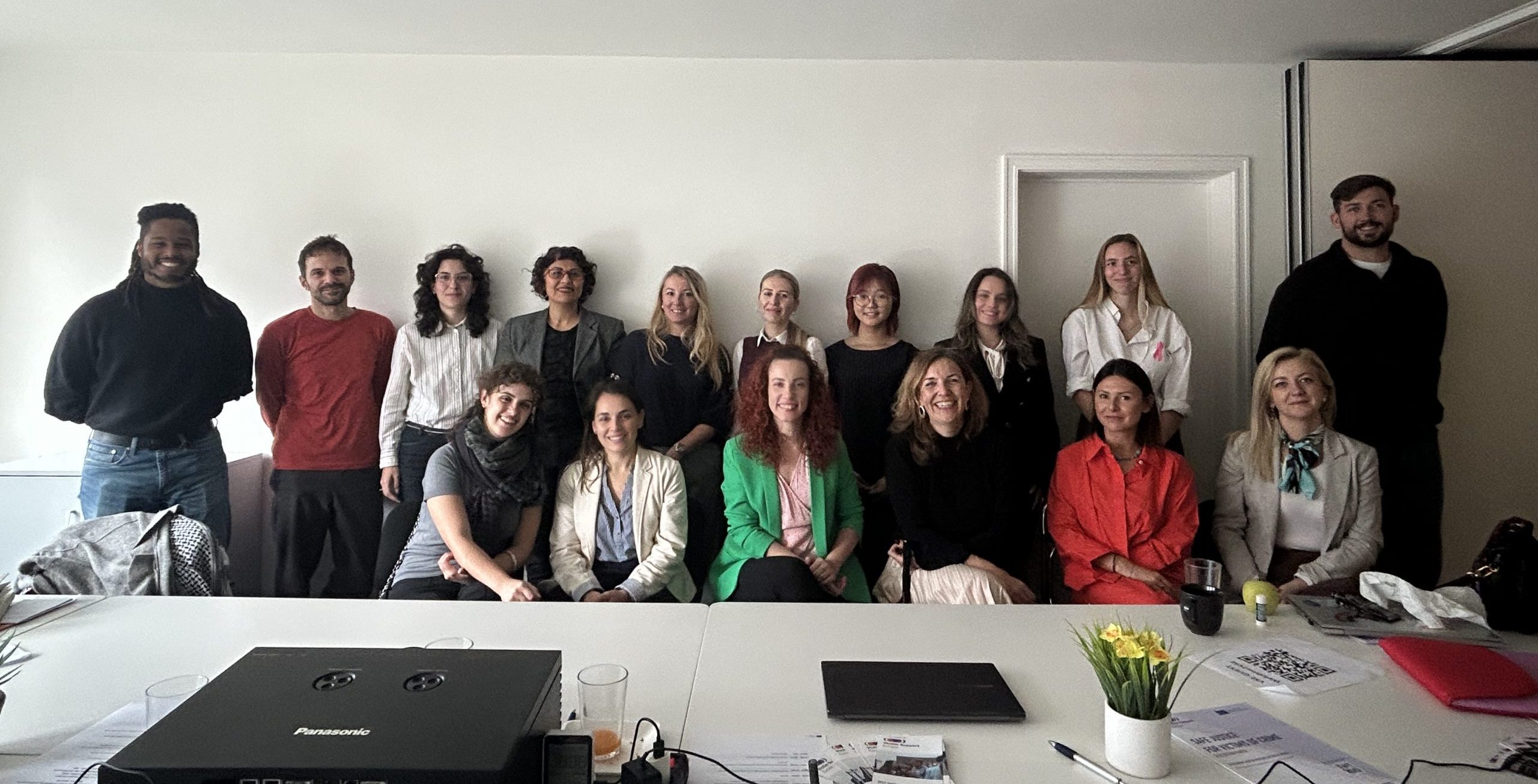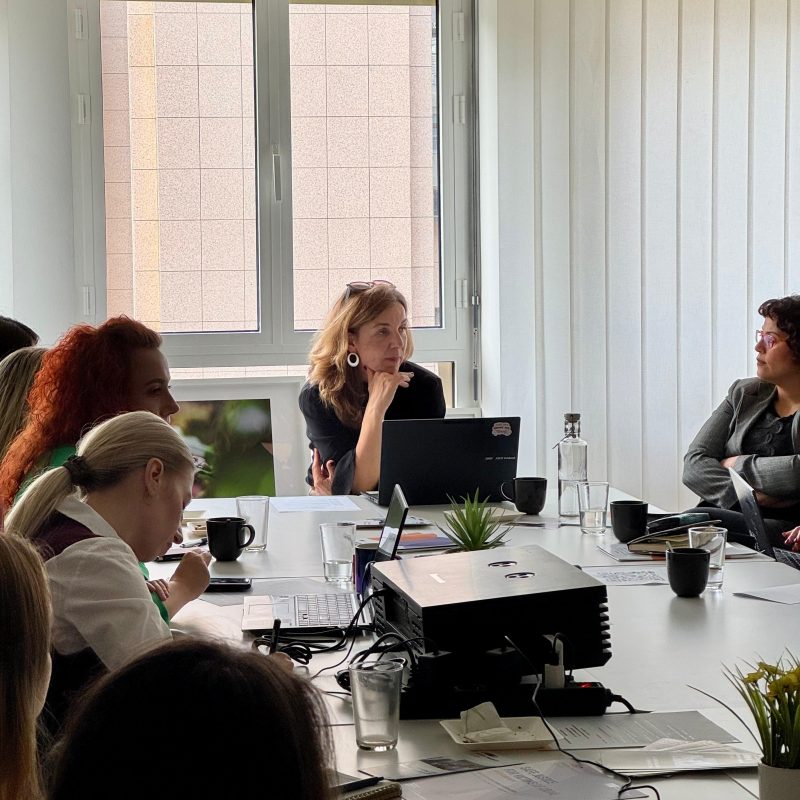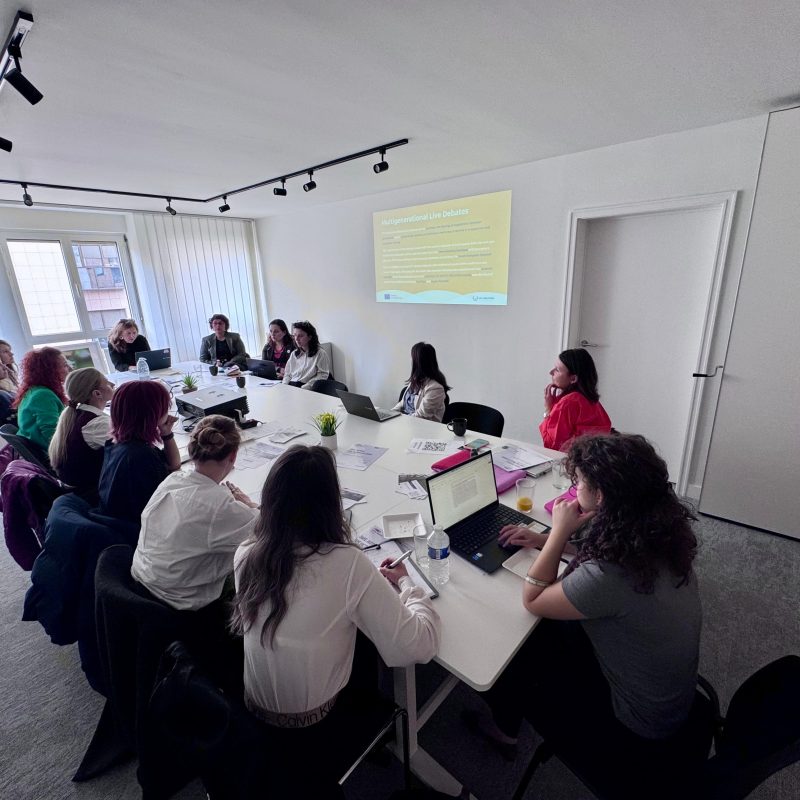
After two years of impactful collaboration across Europe, the No-Oblivion project, “Promoting Universal Jurisdiction while Evoking the Crimes Committed within the Former Yugoslavia“ is set to conclude this month with achievements in advancing justice, memory, and civic engagement. Victim Support Europe (VSE) and the project consortium, IPS Innovative Prison Systems (Portugal), European Association for Social Innovation (Romania), Documenta (Croatia), Centre for Security Studies (Bosnia and Herzegovina), Helsinki Committee for Human Rights, Kosovo Center of Diplomacy (Kosovo), and Camino (Germany), have played a central role in steering the project’s vision and ensuring its results resonate well beyond the project’s formal end. The Belgian Closing Event was hosted at the VSE headquarters in Brussels on October 2nd, and was part of a wider series across partner countries.
The project has strived to preserve the legacy of the 1990s conflicts in Yugoslavia while strengthening the principles of human rights, rule of law, and international justice. VSE and consortium partners embraced a multidimensional approach – combining academic ‘research, legal capacity building, artistic expression, and youth engagement – to create a rich and dynamic platform for dialogue, reflection, and learning. By connecting the lessons of the 90s conflicts with the aspirations of future generations, the project has built a space where memory inspires action and where communities can come together to understand, remember, and help shape a more just and humane Europe.

Representatives from academia, law, civil society and youth communities, and those most affected by the conflicts — including victims, migrants, and their descendants — came together to reflect on the project’s achievements. Among the many achievements of the project are innovative tools and creative works that advance professional and public understanding of justice and memory. These include the Case-Law Practical Booklet, Universal Jurisdiction Guiding Tree, Memory Lane Journal, Multigenerational Live Debates and Podcasts, “Remembering through Art” Online Exhibition, Justice Professional Network, Youth Delegate Network, Network of Victims, Witnesses and descendants, the Reviving Balkan Arts Festival and many others. Developed with contributions from project partners, these resources will continue to serve practitioners, educators, and communities long after the project’s close.
The closing event fostered high level discussions on the future of universal jurisdiction and victims’ access to justice. Attendees agreed on the importance of sustainability, not only in the project implementation but also in the pursuit of justice itself, ensuring that efforts to support victims and strengthen the rule of law endure beyond future funding cycles and political shifts. By holding these conversations, VSE helped position universal jurisdiction and victim support within broader European debates on accountability, memory and resilience.
Sustainability has been at the heart of No-Oblivion’s design. The consortium has laid out clear and concrete pathways to ensure the project’s enduring legacy, from maintaining digital and educational resources to sustaining professional and youth networks, and continuing cultural and artistic memory work. The efforts of VSE and the project partners have transformed short-term achievements into long lasting instruments of change, ensuring that the project’s impact will continue to resonate for years to come.
As Deputy Director Aleksandra Ivankovic reflected, the true legacy of No-Oblivion lies in its ability to inspire outgoing action, to remember the past while shaping a more just and human future. For VSE and its partners, “No-Oblivion” is far more than a project title; it is a shared commitment to uphold the truth, dignity, and justice for all victims. It calls on us to safeguard the lessons of the past and to carry them forward into the turbulence of our present — a reminder that, in times when universal justice is tested, memory itself becomes an act of resistance and hope. By bridging memory and action, No-Oblivion stands as a testament to what can be achieved when collaboration, creativity, and conviction come together.



